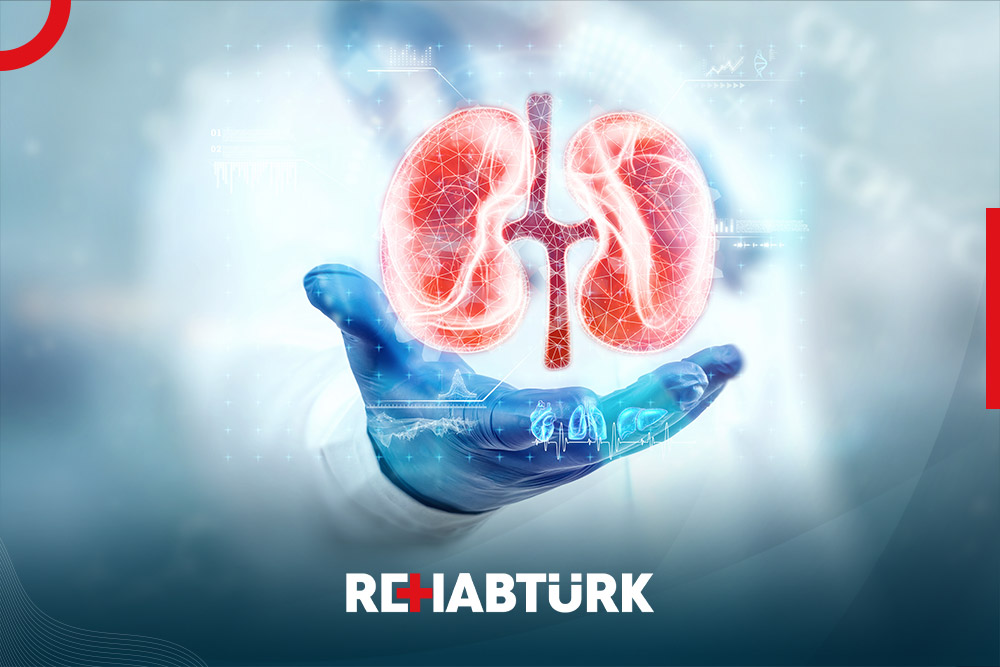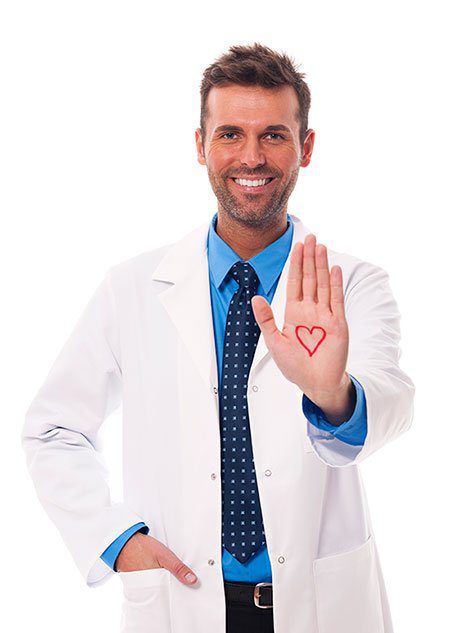Kidney transplantation in Türkiye
Kidney transplantation in Türkiye is a surgery performed to treat kidney failure . The
kidneys filter waste products from the blood and excrete them from the body through urine. They also help maintain fluid and electrolyte balance in the body.
What is a kidney transplant?
If your kidneys stop working, waste builds up in your body and can make you very sick.
People whose kidneys have failed usually undergo a treatment called dialysis.
This treatment mechanically filters waste that builds up in the bloodstream when the kidneys stop working.
Some people whose kidneys have failed may qualify for a kidney transplant.
In this procedure, one or two kidneys are replaced with two donor kidneys from a living or deceased person.
There are advantages and disadvantages to dialysis and a kidney transplant.
Undergoing dialysis takes time and is labor intensive.
Hemodialysis often requires frequent trips to the dialysis center for treatment.
In a dialysis center, the blood is cleaned using a dialysis machine.
A kidney transplant can free you from long-term dependence on a dialysis machine and the rigorous schedule that goes with it.
This can allow you to live a more active life.
However, kidney transplants are not suitable for everyone.
During a kidney transplant, the surgeon takes a donated kidney and places it in the patient’s body.
Even though you were born with two kidneys, you can live a healthy life with only one working kidney.
After the transplant, you will have to take immunosuppressive medications to prevent the immune system from attacking the new organ.
Who might need a kidney transplant?
A kidney transplant may be an option if the kidneys have stopped working completely.
This condition is called end-stage renal disease (ESRD) or end-stage kidney disease (ESKD).
If you reach this point, your doctor will likely recommend dialysis.
In addition to putting you on dialysis, your doctor will tell you if you are a good candidate for a kidney transplant.
You will need to be healthy enough to have major surgery and endure a strict lifelong medication regimen after surgery to be a good candidate for a transplant.
You must also be willing and able to follow all instructions from your doctor and take your medications regularly.
If you have a serious medical condition, a kidney transplant may be dangerous or unlikely to be successful.
These serious conditions include:
Cancer, or a recent history of cancer
Serious infections, such as tuberculosis, bone infections, or hepatitis , severe cardiovascular disease and
liver disease
Your doctor may also recommend that you do not have a transplant if you:

a smoker
a heavy drinker
using illegal drugs
If your doctor thinks you’re a good candidate for a transplant and you’re interested in the procedure, you’ll need to be evaluated at a transplant center.
This evaluation usually includes several visits to assess your physical, psychological and family condition.
The center’s doctors will perform tests on your blood and urine.
They will also give you a complete physical examination to ensure that you are healthy enough to undergo surgery.
A psychologist and social worker will meet with you to make sure you can understand and follow a complex treatment regimen.
The social worker will make sure that you are able to operate and that you have adequate support after you are discharged from hospital.
If approved for a transplant, a family member can donate a kidney.
Kidney transplantation in Türkiye is subject to strict laws that limit the trade in organs. The medical council for the operation will not approve the operation if it is suspected that the kidney donation process took place within a fee.
Who donates a kidney?
Kidney donors may be either living or deceased.
Living donors
Since the body can function perfectly fine with just one healthy kidney, a family member may choose to donate one of them to you.
If your family member’s blood and tissues match yours, you can schedule a planned donation.
Receiving a kidney from a family member is a good option.
It reduces the risk of your body rejecting the kidneys.
deceased donors
Deceased donors are also called cadaver donors.
These are people who have died, usually as a result of an accident rather than a disease.
The donor or his family has chosen to donate his organs and tissues.
Your body will likely reject a kidney from an unrelated donor.
However, kidney transplantation in Türkiye from the Member Bank is not available to foreigners
How is the match between the donor and the recipient of a kidney transplant?
During your evaluation for a kidney transplant in Türkiye, you will undergo blood tests to determine
your blood type (A, B, AB, or O) and human leukocyte antigen (HLA).
HLA is a group of antigens found on the surface of white blood cells.
Antigens are responsible for your body’s immune response.
If your HLA type matches the donor’s HLA type, your body will most likely not reject the kidney.
Each person has six antigens, three from each biological parent.
The more antigens you have that match those of the donor, the greater the chance of a successful transplant.
Once a potential donor has been identified, you will need another test to ensure that your antibodies will not attack the donor’s organ.
This is done by mixing a small amount of your own blood with a donor’s blood.
The transplant cannot take place if your blood forms antibodies in response to the donor blood.
If your blood shows no antibody reaction, you have what is called a ‘negative crossmatch’.
This means that the implantation process can continue.
How is a kidney transplant performed?
A transplant is scheduled in advance if you’re receiving a living-donor kidney.
Kidney transplantation in Türkiye is done under general anesthesia. This includes giving you medication to make you sleep during the surgery.
The anesthetic will be injected into your body through an IV line in your hand or arm.
Once you are asleep, your doctor will make an incision in your abdomen and place the donor kidney inside.
It then connects the arteries and veins from the kidneys to the arteries and veins in the body.
This will start the blood flow through the new kidney.
Your doctor will also attach your kidney’s new ureter to your bladder so you can urinate normally.
Your doctor will leave the original kidneys in your body unless they cause problems, such as high blood pressure or infection.
How is the aftercare after a kidney transplant in Türkiye?
You will wake up in the recovery room.
The hospital staff will monitor your vital signs to make sure you are awake and stable.
After that, they will take you to the hospital room.
Even if you feel better after the transplant, you will likely need to stay in the hospital for up to a week after surgery.
Your new kidney may start eliminating waste from your body right away, or it may take a few weeks before it starts working.
Kidneys donated by family members usually start working more quickly than those from non-deceased or deceased donors.
You can expect a great deal of pain and tenderness near the site of the incision during the first time healing.
While you are in the hospital, doctors will monitor you for complications.
They will also put you on a strict schedule of immunosuppressant medication to prevent your body from rejecting the new kidney.
You will need to take these medicines every day to prevent your body from rejecting the donor kidney.
Before you leave the hospital, the transplant team will give you specific instructions about how and when to take your medications.
Make sure you understand these instructions
And ask as many questions as needed.
Your doctors will also create a schedule of exams for you to follow after surgery.
Once you are discharged, you will need to keep regular appointments with your kidney transplant team so that they can assess how well your new kidney is doing.
You will need to take immunosuppressant medications as directed.
Your doctor will also prescribe additional medications to reduce the risk of infection.
Finally, you will need to monitor yourself for warning signs that your body has rejected a kidney.
These symptoms include pain, swelling, and flu-like symptoms.
You will need to follow up regularly with your doctor for the first 1 to 2 months after surgery.
It may take about six months for you to recover.
What is the cost of a kidney transplant in Türkiye?
The cost of a kidney transplant in Türkiye starts at $18,000, but the final cost will be estimated after examining your medical file.
To request a quote for a kidney transplant in Türkiye, you can contact our doctors , you will get a medical evaluation and a price quote from the hospitals of REHABTÜRK.
How many days do I need to stay for a kidney transplant in Türkiye?
Keep in mind that you will need at least a month for a kidney transplant in Türkiye before returning to your country.
How can I book a kidney transplant in Türkiye?

- Free medical support on the phone: You will have a dedicated representative for your health condition who is always ready to answer your questions.
- Free consultation with a specialist doctor: Your medical representative will consult with a number of doctors and hospitals to find the best possible treatments.
- Free travel visa arrangement: We will contact the embassy in your country to assist you in obtaining a visa to visit Türkiye.
- Free itinerary planning: We will create a schedule for your medical trip to Türkiye.
- Free translation of documents and reports: We will translate medical documents and reports into Turkish on your behalf.
- Free support and monitoring: We will monitor the stages of treatment and be by your side every step of the way.
- Free instant translation: We will be with you during the treatment stages to provide translation between you and the medical team.
- Free accommodation and transportation coordination: We will book accommodation for you and your companions in Türkiye, along with transportation services.
Contact REHABTÜRK doctors for more information about the procedure and to evaluate your medical condition.

